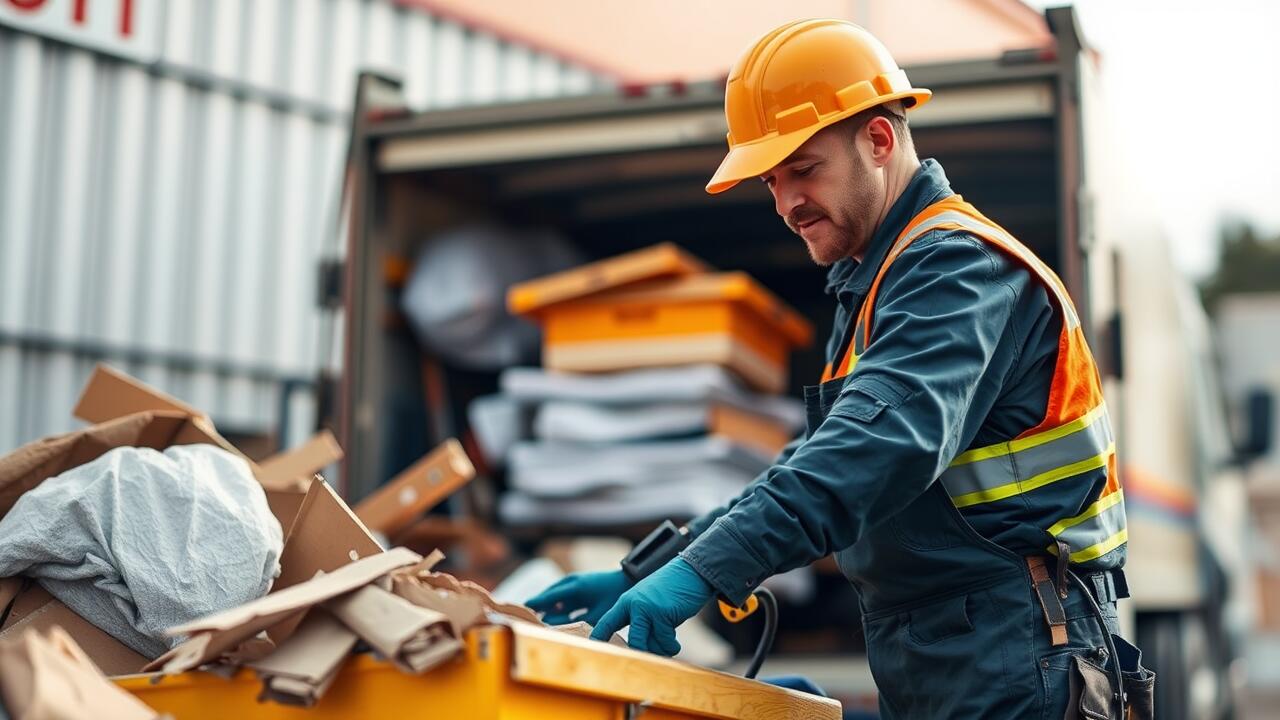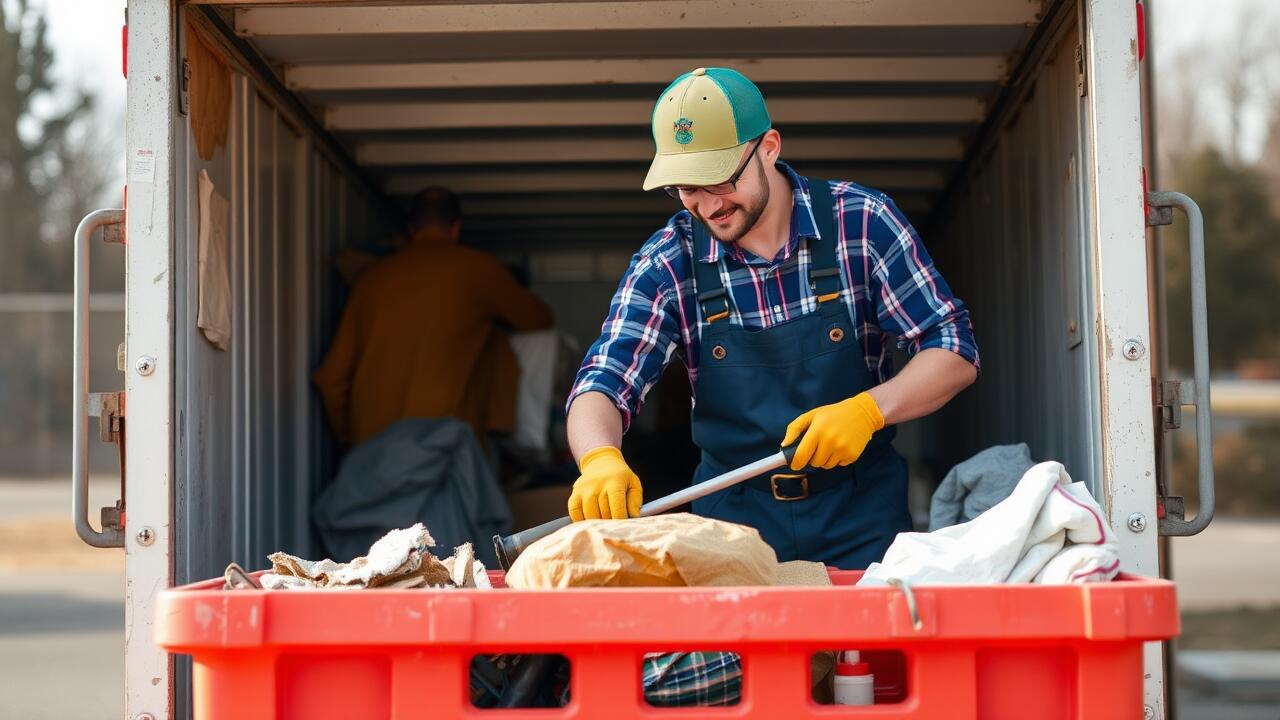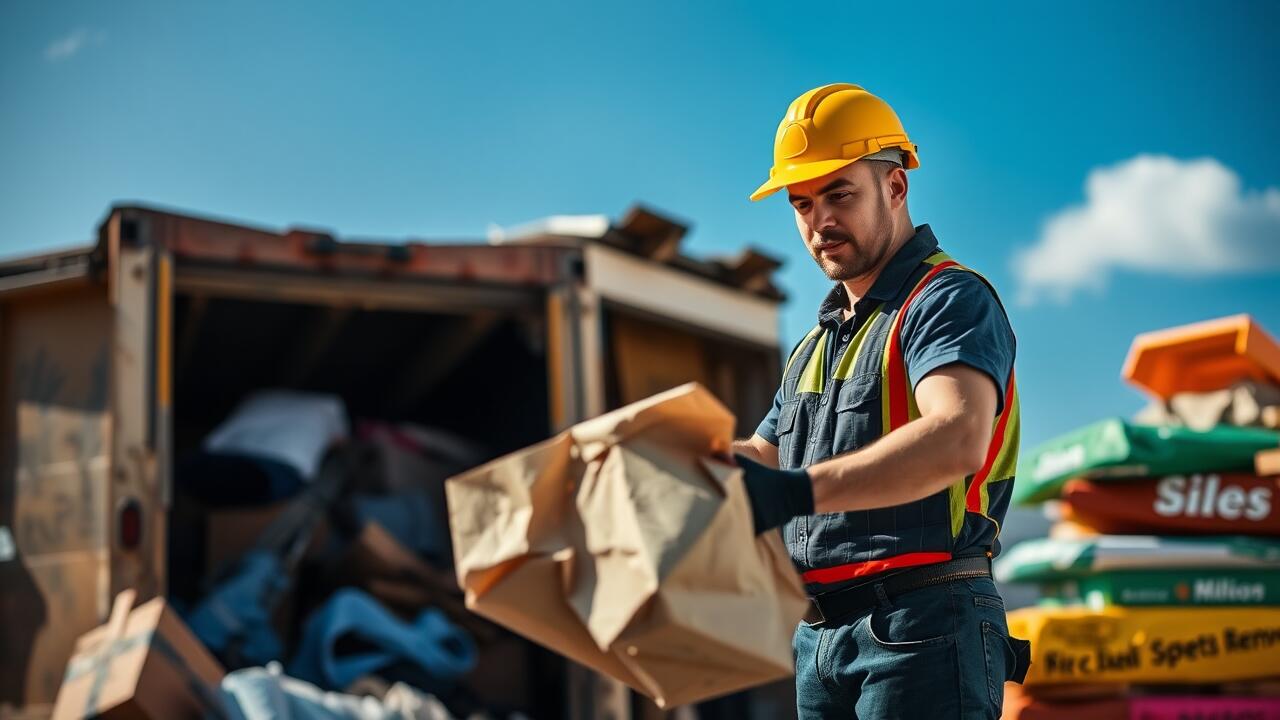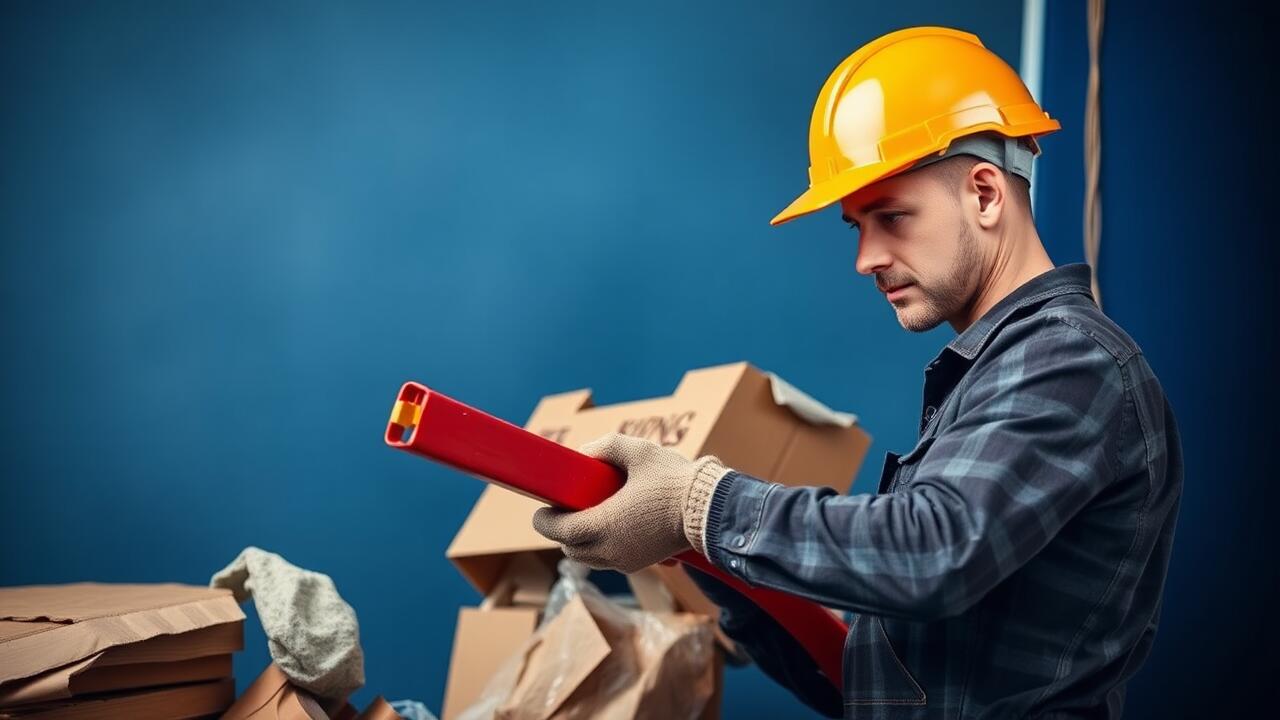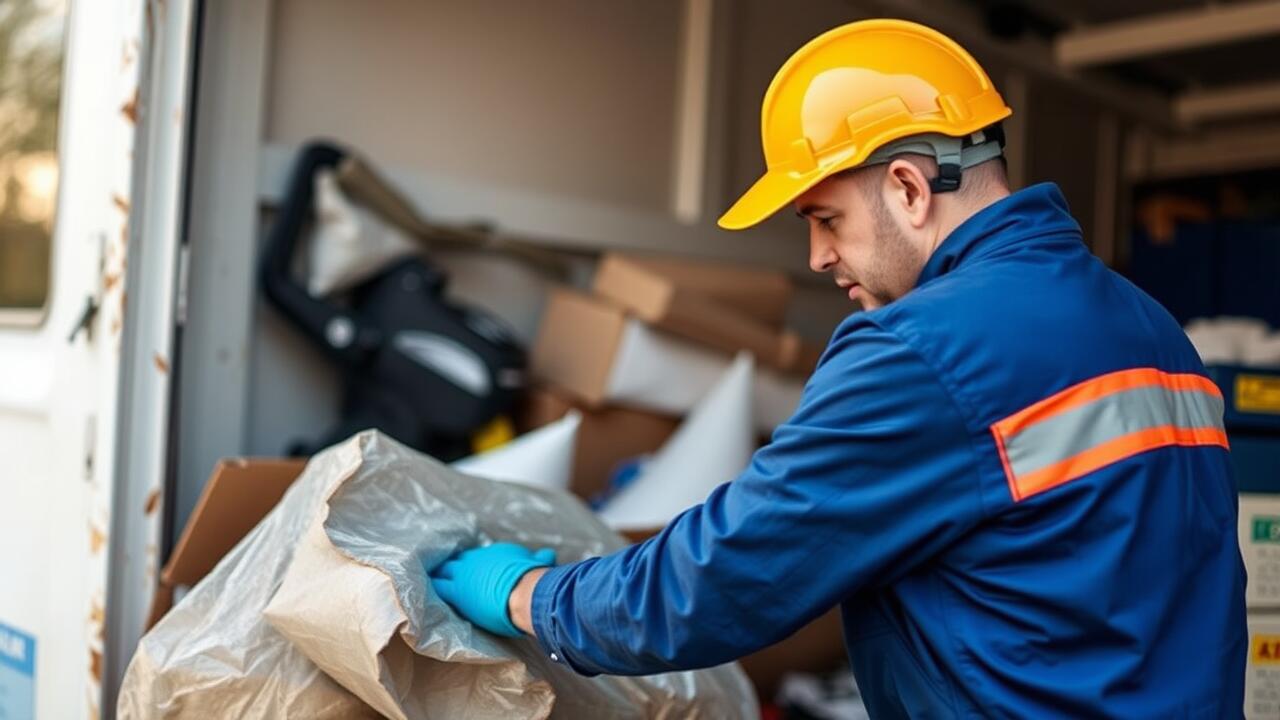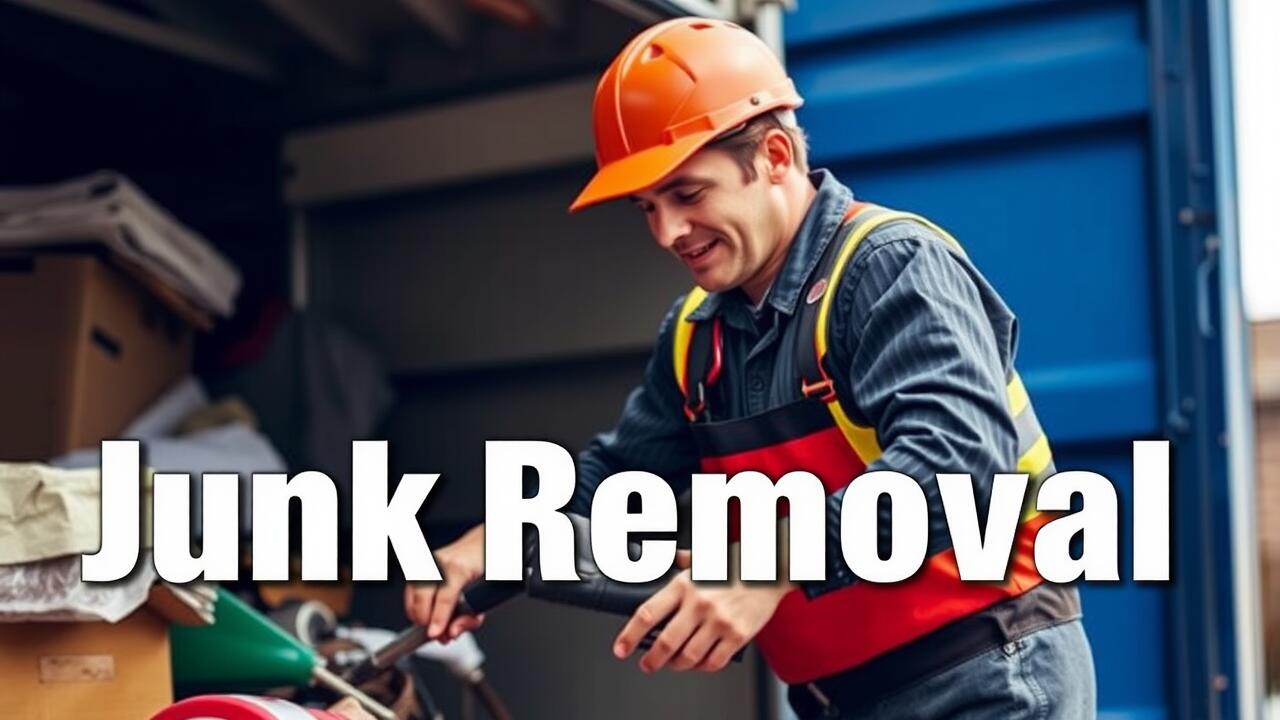
Eco-Friendly Debris Disposal Practices
Eco-friendly debris disposal practices are essential for minimizing the environmental impact of construction activities. Many companies now prioritize recycling and reusing materials whenever possible. This not only helps in diverting waste from landfills but also encourages sustainable resource management. Implementing a zero-waste approach can drastically reduce the carbon footprint associated with debris disposal. The focus on green practices has made junk removal in Phoenix an increasingly popular service as more construction projects seek to uphold environmental standards.
Engaging in responsible debris disposal not only benefits the planet but also offers long-term cost savings. By sorting materials on-site, construction crews can identify what can be recycled or donated, making the overall cleanup process more effective. Partnerships with local recycling facilities are instrumental in ensuring that disposed materials are handled appropriately. As a result, adopting eco-friendly methods contributes to a cleaner environment and supports the community’s sustainability goals.
Sustainable Approaches to Construction Waste Management
Sustainable approaches to construction waste management play a critical role in reducing environmental impact. By implementing practices such as recycling and reusing materials, construction companies can divert a significant portion of waste from landfills. Partnering with specialized services for junk removal in Phoenix ensures that debris is handled responsibly. This process often includes sorting materials on-site to separate recyclables from those that need to be disposed of.
Additionally, innovative solutions like the use of reclaimed materials for new projects contribute to sustainability efforts. These practices not only lower the demand for new resources but also minimize waste generation. Contractors increasingly recognize the value of incorporating green building practices, which can enhance their project outcomes while supporting local ecosystems. Embracing these strategies fosters a culture of sustainability within the construction industry.
The Debris Removal Process
The debris removal process begins with a thorough assessment of the construction site. This evaluation determines the type and volume of debris present, including heavy materials and recyclable items. Once the assessment is complete, a tailored plan is developed to ensure an efficient and safe removal. Workers follow proper protocols to minimize disruptions and maintain site safety throughout the operation. Effective communication among the team members is crucial to ensure that everyone is aware of their roles and any specific site challenges.
After planning, the actual removal phase commences. Utilizing specialized equipment and vehicles, the team systematically categorizes and collects debris, ensuring proper segregation of recyclable materials from non-recyclable waste. This method not only enhances the efficiency of the cleanup but also supports eco-friendly practices. For those seeking reliable services, options for "Junk Removal in Encanto, Phoenix" provide convenient solutions tailored to various construction projects. Proper disposal, recycling, and reporting complete this phase, leaving the site clean and ready for the next steps in the construction timeline.
Steps Involved in Efficient Cleanup
The steps involved in efficient cleanup begin with a thorough assessment of the construction site. Professionals evaluate the types and volumes of debris present, identifying materials that can be recycled or reused. This initial inspection is crucial for developing a tailored junk removal strategy that minimizes waste and maximizes resource recovery. Once the assessment is complete, a detailed plan is crafted to ensure that the removal process is organized and adheres to local regulations.
Following the assessment, the actual removal process commences. Crews equipped with the necessary tools and safety gear work systematically to gather and transport the debris. This often includes sorting materials on-site to separate recyclable items from waste. The efficiency of junk removal in Phoenix relies heavily on the use of appropriate vehicles and equipment, ensuring that all debris is removed swiftly while maintaining safety and compliance with environmental standards.
Timelines for Debris Removal
Establishing a timeline for debris removal is essential for maintaining the efficiency of a construction project. Factors such as the size of the site, the nature of the debris, and overall project duration play crucial roles in determining how long it will take to clear away waste materials. Effective communication with the debris removal company helps ensure that the process aligns with the project's schedule. Understanding potential obstacles, such as unexpected weather conditions or delays in material delivery, can also impact the timing of debris disposal.
Planning for junk removal in Phoenix requires careful consideration of the project phases. Depending on whether the work is residential or commercial, the strategy for debris removal can vary significantly. For larger projects, it may be beneficial to schedule regular pickups to prevent debris from accumulating. By taking proactive steps to integrate cleanup efforts into the overall project timeline, construction teams can minimize disruptions and keep the site organized and safe.
Planning Based on Project Duration
Understanding the timeline of a construction project is crucial for planning debris removal. Different phases of construction can generate varying amounts of waste. Quick projects may require immediate debris pickup after specific tasks, while larger builds might necessitate ongoing removal throughout the construction duration. A well-structured timeline allows construction managers to coordinate effectively with debris removal services, ensuring that each phase remains on track without unnecessary clutter.
When scheduling junk removal in North Gateway, Phoenix, it helps to account for peak times when debris is likely to accumulate. Communication with contractors is essential for adjusting debris pickup schedules as project needs evolve. This proactive approach minimizes delays and can lead to a more seamless construction experience. Efficient planning not only enhances operational flow but also maintains worksite safety and cleanliness.
FAQS
What types of construction debris can be removed by your services?
Our services can handle a wide range of construction debris, including concrete, wood, metal, drywall, insulation, and more. We ensure responsible disposal of all materials.
Are your debris removal practices eco-friendly?
Yes, we prioritize eco-friendly debris disposal practices by recycling and repurposing materials whenever possible, contributing to sustainable construction waste management.
How long does the debris removal process typically take?
The duration of the debris removal process depends on the size of the project and the volume of debris. However, we strive to complete cleanups efficiently and can provide a timeline during the initial consultation.
Can you accommodate emergency debris removal requests?
Yes, we offer emergency debris removal services. If you have an urgent need, please contact us, and we will do our best to respond quickly.
How do you determine the cost of debris removal services?
The cost of debris removal services is typically based on factors such as the volume and type of debris, the complexity of the job, and the location. We provide customized quotes after assessing your specific needs.
